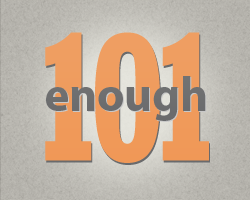
Editor’s Note: This post is a brief history, intended to provide a contextual background for understanding the complex issues that the Enough Project works on. It is part of the series Enough 101.
Acronyms to Know:
SPLM/A – Sudan People’s Liberation Movement/Army
CPA – Comprehensive Peace Agreement
GOS – Government of Sudan
NCP – National Congress Party
SAF – Sudan Armed Forces (National Army of the Government of Sudan)
In June 2002, the SPLM/A and the GOS began negotiations to end Sudan’s second civil war. Those negotiations culminated in the January 9, 2005 signing of the Comprehensive Peace Agreement, or CPA. The CPA itself is comprised of six protocols concluded between 2002 and 2005. These six protocols provide for, among other things, the following:
- A six-year Interim Period, at the end of which, the people of southern Sudan were given the right to vote in a self-determination referendum to decide whether to remain united with Sudan or to secede.
- A cessation of hostilities between the SPLA and the SAF, and the maintenance of SPLA forces in the south and SAF forces in the north.
- The establishment of a secular, semi-autonomous Southern Sudan with its own executive, legislative and judicial institutions.
- Power sharing arrangements between Sudan’s two major political parties, the SPLM and NCP, as well as smaller parties, at the national and Southern Sudan levels of government.
- Wealth sharing arrangements whereby, among other things, profits from oil extracted in southern Sudan were split 50-50 between the national and southern Sudan levels of government.
- Democratic elections to occur during the Interim Period.
- The establishment of a special administrative status for the disputed Abyei area, as well as a referendum for the “residents” of Abyei, to be carried out at the same time as the Southern Sudan referendum.
Popular consultation processes in the northern states of South Kordofan and Blue Nile, the populations of which aligned largely with the SPLA during the second civil war. In accordance with the provisions of the CPA, the people of Southern Sudan voted in the Southern Sudan referendum on January 9, 2011. Six months later, on July 9, 2011, the Interim Period came to an end and South Sudan became the world’s newest nation.
Despite this success, critical aspects of the CPA remain unimplemented. The Abyei area referendum never occurred, due to a disagreement between the two CPA parties over the definition of the term “resident” of the Abyei area. While some progress was made in carrying out popular consultations in Blue Nile, the process was never concluded. In South Kordofan, it never began. Today a new temporary agreement, concluded in June 2011, concerning the Abyei area remains unimplemented. In South Kordofan and Blue Nile, the GOS has launched a sustained military offensive against the civilians of the two states.
For more on Sudan's history, read the previous Enough 101 post: "Sudan: Independence through Civil Wars."
For more information and to see the sources used in this post, check out the Enough Project's Sudan Pinterest Board.

